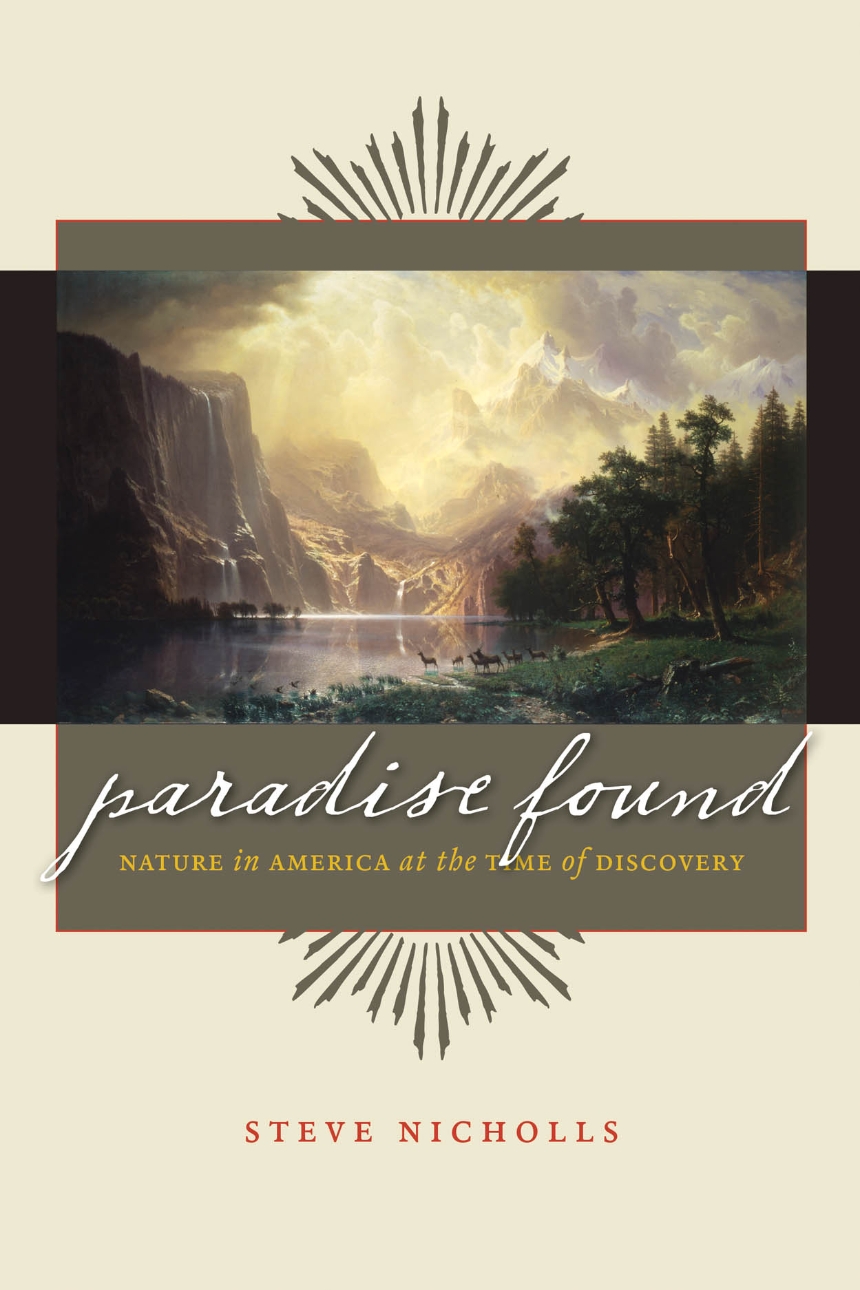Paradise Found
Nature in America at the Time of Discovery
The first Europeans to set foot on North America stood in awe of the natural abundance before them. The skies were filled with birds, seas and rivers teemed with fish, and the forests and grasslands were a hunter’s dream, with populations of game too abundant and diverse to even fathom. It’s no wonder these first settlers thought they had discovered a paradise of sorts. Fortunately for us, they left a legacy of copious records documenting what they saw, and these observations make it possible to craft a far more detailed evocation of North America before its settlement than any other place on the planet.
Here Steve Nicholls brings this spectacular environment back to vivid life, demonstrating with both historical narrative and scientific inquiry just what an amazing place North America was and how it looked when the explorers first found it. The story of the continent’s colonization forms a backdrop to its natural history, which Nicholls explores in chapters on the North Atlantic, the East Coast, the Subtropical Caribbean, the West Coast, Baja California, and the Great Plains. Seamlessly blending firsthand accounts from centuries past with the findings of scientists today, Nicholls also introduces us to a myriad cast of characters who have chronicled the changing landscape, from pre–Revolutionary era settlers to researchers whom he has met in the field.
A director and writer of Emmy Award–winning wildlife documentaries for the Smithsonian Channel, Animal Planet, National Geographic, and PBS, Nicholls deploys a cinematic flair for capturing nature at its most mesmerizing throughout. But Paradise Found is much more than a celebration of what once was: it is also a reminder of how much we have lost along the way and an urgent call to action so future generations are more responsible stewards of the world around them. The result is popular science of the highest order: a book as remarkable as the landscape it recreates and as inspired as the men and women who discovered it.
536 pages | 6 x 9 | © 2009
Biological Sciences: Ecology, Natural History
History: American History
Reviews
Table of Contents
Acknowledgments
1 A Different World
2 The Discovery of Paradise
3 Abundant Ocean
4 Sea of Whales
5 Living in Paradise
6 Angels from the North
7 Earthly Paradise or Earthly Hades?
8 Poll, Ben, and Martha
9 Souls and Furs
10 Gathering of Waters
11 A Sea of Islands
12 Islands in the Sea
13 La Florida
14 … To Shining Sea
15 Blessings Fit for the Use of Man
16 Rivers of Fish
17 Wilderness Cathedral
18 The Great Stillness
19 Devils in Paradise
20 A New World?
Index